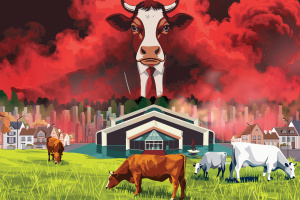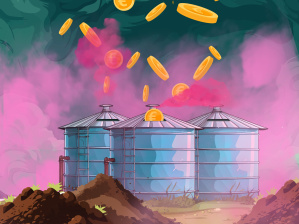Fast fashion should be honest with consumers about plastics
Nusa Urbancic – The Changing Markets Foundation London EC2, UK
Published on 20 August 2021, Financial Times: https://www.ft.com/content/1c63c88b-4db5-49ef-b21c-5bb4f16fdf14
In the article “Recycled plastic is the height of fashion but has a hidden price tag” (FT Weekend, August 14), you rightly point out a key catch in this recent sustainability trend: despite sounding great, recycled plastic in clothes is a one-way ticket to landfill or incineration and it does not solve other problems, such as microplastic pollution. Therefore, it is concerning that this is one of the key responses to sustainability that fashion brands and their voluntary initiatives resort to.
The Changing Markets Foundation reached out to 46 of the most transparent fashion brands with a questionnaire.
The responses show that 85 per cent of companies aim to achieve their “recycled” content targets by using polyester from “downcycled” PET bottles — that is materials that are less structurally strong and can only be used once, usually for lower quality applications.
On the other hand, none of the brands has a clear plan to move towards fibre-to-fibre recycling and their investments in true circular economy solutions are minuscule.
Greenwashing was rampant across the targets the brands disclosed, including claims of using “sustainable”, “preferred”, “sustainably sourced” or “sustainably made” materials, the criteria for which were often ill-defined and constitute unsubstantiated claims that mislead consumers.
At the same time, the use of virgin synthetic fibres in the sector has grown exponentially, and the use of polyester has more than doubled over the last 20 years. It is time to critically rethink the plastic problem so inherently linked with the fast fashion business model and stop relying on sticking-plaster solutions, like r-PET from downcycled waste of another sector.
Nusa Urbancic – The Changing Markets Foundation London EC2, UK
You might also like...

The New Faces of GWP*: Temperature neutrality and no additional warming
This briefing represents an update of Changing Market's Seeing Stars report (2023), based on FOI requests in Ireland, New Zealand, Europe and Northern Ireland.

The Meat Agenda: Agricultural Exceptionalism and Greenwash in Brazil
As Brazil prepares to host the 30th conference of the parties of UNFCCC (COP30) in heart of the Amazon, the country is positioning itself as a global climate leader with ambitious emissions reduction targets...

Biogas Policies in the EU: Levelling up or locking in?
Commissioned by the Methane Matters Coalition, this report examines the current status of the biogas industry in the European Union, along with 7 country case studies.